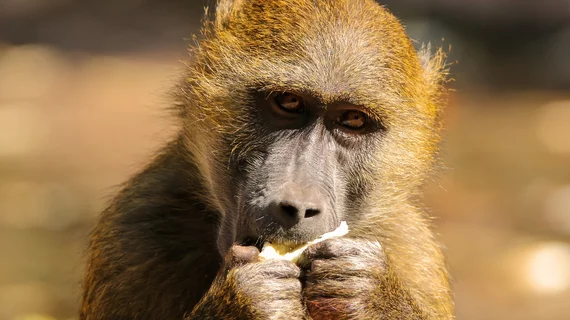Two baboons recently survived for six months following the transplantation of genetically modified pig hearts, bringing scientists closer to potentially using animal organs for humans who need transplants.
The research, published Dec. 5 in the journal Nature, detailed the experience of transplanting hearts from 14 juvenile pigs into 14 male baboons from February 2015 through August 2018. All the hearts were genetically modified to express the human CD46 gene and a membrane protein called thrombomodulin.
The primates were divided into three groups, one of which fared significantly better than the others. Those five baboons received antihypertensive treatment—because systolic blood pressures are lower in pigs than baboons—and additional medication to counteract cardiac overgrowth. All five had good heart function four weeks after transplantation, and two of them survived “in general good condition” for 195 and 182 days, respectively, according to a CNN report.
Charles Murry, MD, PhD, told the news outlet the ability to keep a pig heart alive and functioning for that long in a baboon indicates similar results could be achieved in human patients. But we’re likely a way off from any in-human trials, he said.
"I don't think we're ready for this step just yet, neither scientifically nor societally,” Murry, a cardiovascular pathologist and director of the Institute for Stem Cell and Regenerative Medicine at the University of Washington, told CNN. “Scientifically, we need to learn more about the long-term immune response to the foreign organ and whether there is evidence for viruses or other disease agents being transmitted. Societally, I think we need to let the public get their minds around this concept a bit.”
This is an attractive area for research because the current supply of human donor hearts falls far short of the demand. Murry speculated the first attempt to transplant an animal heart into a human patient would be to buy time until a human organ becomes available.
Read the full story from CNN below:

